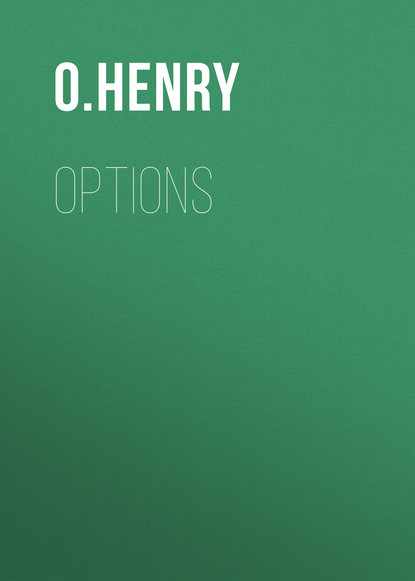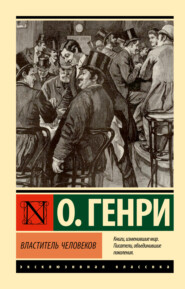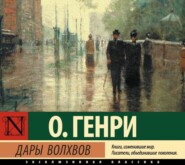По всем вопросам обращайтесь на: info@litportal.ru
(©) 2003-2025.
✖
Options
Настройки чтения
Размер шрифта
Высота строк
Поля
"I am a newspaper reporter," I said to him, to try him. "I have been detailed to write up some of the experiences of the unfortunate ones who spend their evenings in this park. May I ask you to what you attribute your downfall in – "
I was interrupted by a laugh from my purchase – a laugh so rusty and unpractised that I was sure it had been his first for many a day.
"Oh, no, no," said he. "You ain't a reporter. Reporters don't talk that way. They pretend to be one of us, and say they've just got in on the blind baggage from St. Louis. I can tell a reporter on sight. Us park bums get to be fine judges of human nature. We sit here all day and watch the people go by. I can size up anybody who walks past my bench in a way that would surprise you."
"Well," I said, "go on and tell me. How do you size me up?"
"I should say," said the student of human nature with unpardonable hesitation, "that you was, say, in the contracting business – or maybe worked in a store – or was a sign-painter. You stopped in the park to finish your cigar, and thought you'd get a little free monologue out of me. Still, you might be a plasterer or a lawyer – it's getting kind of dark, you see. And your wife won't let you smoke at home."
I frowned gloomily.
"But, judging again," went on the reader of men, "I'd say you ain't got a wife."
"No," said I, rising restlessly. "No, no, no, I ain't. But I will have, by the arrows of Cupid! That is, if – "
My voice must have trailed away and muffled itself in uncertainty and despair.
"I see you have a story yourself," said the dusty vagrant – impudently, it seemed to me. "Suppose you take your dime back and spin your yarn for me. I'm interested myself in the ups and downs of unfortunate ones who spend their evenings in the park."
Somehow, that amused me. I looked at the frowsy derelict with more interest. I did have a story. Why not tell it to him? I had told none of my friends. I had always been a reserved and bottled-up man. It was psychical timidity or sensitiveness – perhaps both. And I smiled to myself in wonder when I felt an impulse to confide in this stranger and vagabond.
"Jack," said I.
"Mack," said he.
"Mack," said I, "I'll tell you."
"Do you want the dime back in advance?" said he.
I handed him a dollar.
"The dime," said I, "was the price of listening to your story."
"Right on the point of the jaw," said he. "Go on."
And then, incredible as it may seem to the lovers in the world who confide their sorrows only to the night wind and the gibbous moon, I laid bare my secret to that wreck of all things that you would have supposed to be in sympathy with love.
I told him of the days and weeks and months that I had spent in adoring Mildred Telfair. I spoke of my despair, my grievous days and wakeful nights, my dwindling hopes and distress of mind. I even pictured to this night-prowler her beauty and dignity, the great sway she had in society, and the magnificence of her life as the elder daughter of an ancient race whose pride overbalanced the dollars of the city's millionaires.
"Why don't you cop the lady out?" asked Mack, bringing me down to earth and dialect again.
I explained to him that my worth was so small, my income so minute, and my fears so large that I hadn't the courage to speak to her of my worship. I told him that in her presence I could only blush and stammer, and that she looked upon me with a wonderful, maddening smile of amusement.
"She kind of moves in the professional class, don't she?" asked Mack.
"The Telfair family – " I began, haughtily.
"I mean professional beauty," said my hearer.
"She is greatly and widely admired," I answered, cautiously.
"Any sisters?"
"One."
"You know any more girls?"
"Why, several," I answered. "And a few others."
"Say," said Mack, "tell me one thing – can you hand out the dope to other girls? Can you chin 'em and make matinée eyes at 'em and squeeze 'em? You know what I mean. You're just shy when it comes to this particular dame – the professional beauty – ain't that right?"
"In a way you have outlined the situation with approximate truth," I admitted.
"I thought so," said Mack, grimly. "Now, that reminds me of my own case. I'll tell you about it."
I was indignant, but concealed it. What was this loafer's case or anybody's case compared with mine? Besides, I had given him a dollar and ten cents.
"Feel my muscle," said my companion, suddenly, flexing his biceps. I did so mechanically. The fellows in gyms are always asking you to do that. His arm was as hard as cast-iron.
"Four years ago," said Mack, "I could lick any man in New York outside of the professional ring. Your case and mine is just the same. I come from the West Side – between Thirtieth and Fourteenth – I won't give the number on the door. I was a scrapper when I was ten, and when I was twenty no amateur in the city could stand up four rounds with me. 'S a fact. You know Bill McCarty? No? He managed the smokers for some of them swell clubs. Well, I knocked out everything Bill brought up before me. I was a middle-weight, but could train down to a welter when necessary. I boxed all over the West Side at bouts and benefits and private entertainments, and was never put out once.
"But, say, the first time I put my foot in the ring with a professional I was no more than a canned lobster. I dunno how it was – I seemed to lose heart. I guess I got too much imagination. There was a formality and publicness about it that kind of weakened my nerve. I never won a fight in the ring. Light-weights and all kinds of scrubs used to sign up with my manager and then walk up and tap me on the wrist and see me fall. The minute I seen the crowd and a lot of gents in evening clothes down in front, and seen a professional come inside the ropes, I got as weak as ginger-ale.
"Of course, it wasn't long till I couldn't get no backers, and I didn't have any more chances to fight a professional – or many amateurs, either. But lemme tell you – I was as good as most men inside the ring or out. It was just that dumb, dead feeling I had when I was up against a regular that always done me up.
"Well, sir, after I had got out of the business, I got a mighty grouch on. I used to go round town licking private citizens and all kinds of unprofessionals just to please myself. I'd lick cops in dark streets and car-conductors and cab-drivers and draymen whenever I could start a row with 'em. It didn't make any difference how big they were, or how much science they had, I got away with 'em. If I'd only just have had the confidence in the ring that I had beating up the best men outside of it, I'd be wearing black pearls and heliotrope silk socks to-day.
"One evening I was walking along near the Bowery, thinking about things, when along comes a slumming-party. About six or seven they was, all in swallowtails, and these silk hats that don't shine. One of the gang kind of shoves me off the sidewalk. I hadn't had a scrap in three days, and I just says, 'De-light-ed!' and hits him back of the ear.
"Well, we had it. That Johnnie put up as decent a little fight as you'd want to see in the moving pictures. It was on a side street, and no cops around. The other guy had a lot of science, but it only took me about six minutes to lay him out.
"Some of the swallowtails dragged him up against some steps and began to fan him. Another one of 'em comes over to me and says:
"'Young man, do you know what you've done?'
"'Oh, beat it,' says I. 'I've done nothing but a little punching-bag work. Take Freddy back to Yale and tell him to quit studying sociology on the wrong side of the sidewalk.'
"'My good fellow,' says he, 'I don't know who you are, but I'd like to. You've knocked out Reddy Burns, the champion middle-weight of the world! He came to New York yesterday, to try to get a match on with Jim Jeffries. If you – '
"But when I come out of my faint I was laying on the floor in a drug-store saturated with aromatic spirits of ammonia. If I'd known that was Reddy Burns, I'd have got down in the gutter and crawled past him instead of handing him one like I did. Why, if I'd ever been in a ring and seen him climbing over the ropes, I'd have been all to the sal-volatile.
"So that's what imagination does," concluded Mack. "And, as I said, your case and mine is simultaneous. You'll never win out. You can't go up against the professionals. I tell you, it's a park bench for yours in this romance business."
Mack, the pessimist, laughed harshly.
"I'm afraid I don't see the parallel," I said, coldly. "I have only a very slight acquaintance with the prize-ring."
The derelict touched my sleeve with his forefinger, for emphasis, as he explained his parable.

















